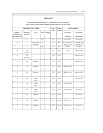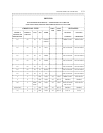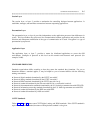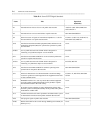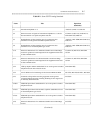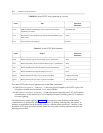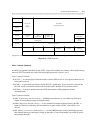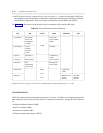COMMUNICATIONS PROTOCOLS D-5
_ ______________________________________________________________________________________
_ ______________________________________________________________________________________
_ ______________________________________________________________________________________
Session Layer
The session layer, or layer 5, provides a mechanism for controlling dialogue between applications. It
establishes, manages, and terminates connections between cooperating applications.
Presentation Layer
The presentation layer, or layer 6, provides independence to the application processes from differences in
syntax. This layer defines the syntax used for communication between applications and provides for the
selection and subsequent modification of the type of communication to be used. Encryption is a type of
presentation layer protocol.
Application Layer
The application layer, or layer 7, provides a means for distributed applications to access the OSI
environment. Examples of protocols at this level are file transfer and electronic mail protocols (for
example, X.400).
STANDARD PROTOCOLS
Standards organizations differ according to how they name the standards they formulate. For you to
determine whether a standard applies, it may be helpful to you to become familiar with the following
naming conventions:
• Names of digital standards formulated by the CCITT start with X.
• Names of analog standards formulated by the CCITT start with V.
• Names of ISDN standards formulated by the CCITT start with I or Q.
• Names of standards formulated by the EIA start with RS (for recommended standard).
• Names of telecommunication standards formulated by the U.S. federal government start with FED-STD.
• Names of information processing standards formulated by the U.S. federal government start with FIPS.
• Names of standards formulated by the IEEE start with IEEE.
• Names of standards formulated by ANSI start with X.
CCITT Standards
Tables 1-1, 1-2, and 1-3 name some CCITT digital, analog, and ISDN standards. If the CCITT standard is
equivalent to any other standard, the name of the equivalent standard is also given.



